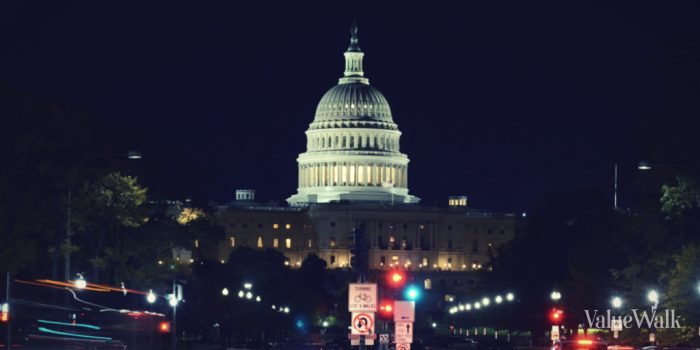Access shareholder letters from the world’s leading hedge funds and discover the opportunities they are seeking to maximize their returns in 2023. Hunter Biden’s special attorney is illegal and can be disqualified; Many complain bitterly, but will they take action? The special attorney in the Hunter Biden case violates federal law WASHINGTON, DC (August 14, 2023) – Despite ample evidence strongly suggesting that US Attorney David Weiss did not vigorously investigate and prosecute Hunter Biden for his numerous acknowledged crimes, and that he may have succumbed to political pressure. Full freedom prison « Dear » guilty plea, Attorney General [AG] Merrick Garland appointed him as a « special counsel » to continue overseeing the investigation and prosecution – and to continue monitoring any potential plea agreement involving the President’s son. But more important than mere objections regarding his lack of enthusiasm for prosecution and possible succumbing to political pressure, is that Weiss’s appointment is a blatant violation of federal law. Furthermore, despite claims that the Uniform Law makes such appointments immune from legal challenge, Weiss’s appointment can be legally contested, according to public interest law professor John Banzaff, who worked to obtain special prosecutors that forced former President Richard Nixon to resign and obtained a court order requiring the appointment of an independent attorney in another case. While there is currently no federal law providing for the appointment of a special attorney (or « special prosecutor » or « independent attorney » as they were once called), federal law [28 CFR 600] does provide for such appointments and clearly and distinctly states [at 600.3] that it is a « special counsel. » It will be selected from outside the United States Government. » [emphasis added] Professor Banzaff says there are several things to consider about these federal regulations. First, the rules are legally binding on the government and its various agents, including the AG and his subordinates, unless they are amended or repealed in accordance with applicable law. These particular consultation rules remain in effect and bind the AG. Therefore, they should be followed by judges in regular proceedings. Second, the use of the mandatory word « shall » instead of « may » or « must » in the rules implies that the requirement is clearly mandatory and cannot be avoided or ignored by the AG or the judges. In fact, what makes a special attorney special is not just that the AG assigns him additional functions or powers, but – to ensure that he will indeed be an « independent » attorney – that he consults outside the government. Do you know which under-the-radar actions the top hedge funds and institutional investors are currently investing in? Click here to find out. Third, Weiss was appointed in accordance with and pursuant to these special counsel regulations, although Garland also cited 28 USC §§ 509, 510, 515, and 533. As the AG stated in his statement announcing Weiss’s appointment: « I am here today to announce the appointment of David Weiss as special counsel, pursuant to the Department of Justice regulations governing these matters. Keeping these regulations in mind, I have informed the designated members of each House today. , , In accordance with the special counsel rules, at the conclusion of Mr. Weiss’s mission, he will provide me with a report. , , [emphasis added] outside the requirement of the United States Government Professor of law Jonathan Turley, who, like Professor Bunzhaf, has long argued that the law requires the appointment of a special attorney for Hunter, also addressed the issue: « Of course, Garland can argue that, although this appointment within the Department of Justice violates the law, special attorney John Durham was also chosen from within the ranks of the department. Yet, this does not excuse the appointment of a prosecutor accused of conflicts of interest and false statements – the opposite of a special attorney who is supposed to have a « reputation for integrity and impartial judgment. » This « outside the United States Government » requirement was included in the regulation because the drafters realized that anyone who did not come from outside the federal government would face enormous, if not strong, political pressure, as in most cases, they could be fired directly or indirectly (e.g., by being subordinate) by the president and/or by a cabinet secretary such as the attorney general. as rules [600.00] otherwise clarified: « The investigation or prosecution of that person or matter by the United States Attorney’s Office or the Department of Justice’s Litigation Division would present a conflict of interest for the Department. . . . » [emphasis added] In other words, the mere fact that the person conducting the investigation belonged to a different political party than the suspect – the excuse used by Garland long ago for not appointing a special attorney when the conflict of interest first arose – does not guarantee the necessary freedom to ensure impartiality and, to the extent possible, protection from political pressures. Therefore, while those who argue that Weiss is not eligible to be a special attorney because he does not meet the other general qualifications specified in the rules – for example, « an attorney known for integrity and fair judgment » – cannot challenge the appointment. on the grounds that qualities like « integrity » are a matter of judgment, it is clear beyond any doubt or possible argument that Weiss does not meet the vital and obvious requirement of being « outside the United States Government. » It seems that members of Congress and others most likely to oppose Weiss’s appointment do not plan to pursue legal challenges based on arguments grounded in rule 600.10, which states: « The regulations in this part are not intended to create, nor do they create, any rights, substantive or procedural, enforceable at law or in equity by any person or entity in any civil, criminal, or administrative matter. » But Weiss’s appointment could be challenged if one thinks creatively, says the law professor who used unusual litigation strategies to get McDonald’s to pay over $12 million for true but misleading statements, forced Spiro Agnew to withdraw money he had taken through corruption, and got the country’s railroads to stop charging high prices for transporting recyclable materials. For his involvement in other unusual but successful litigation, he has been called the « legal brain behind tobacco industry litigation » and « a driving force behind lawsuits that cost tobacco companies billions of dollars. » Although 600.10 states that the rules do not create any new rights – meaning A may sue B to enforce a legal obligation A – it does not mean that the express limitations they contain can never be enforced. Professor Banzaff says he once convinced a federal judge that although federal regulations designed to protect federal employees from exposure to certain toxic substances did not give him the right to sue for violation, the assistant rules could be indirectly invoked in judicial proceedings. For example, if Hunter has been charged with crimes in places other than Delaware but has refused to raise the issue with a wrongly appointed special attorney (perhaps as part of a new cover-up or another agreement), then the illegality of Weiss’s appointment as special counsel can certainly be brought to the attention of a judge (preferably again by a powerful member of Congress) (similar to the objections filed by Bunzhoff and others regarding Hunter’s plea agreement). The judge would likely refuse to allow the proceedings to continue, although neither the filers nor the judge have « any rights, substantive or procedural, enforceable at law or in equity » to ensure that the proceedings are already underway. The…
EnregistrerEnregistréSupprimé 0
Related Articles
Nous serions ravis de connaître votre avis








